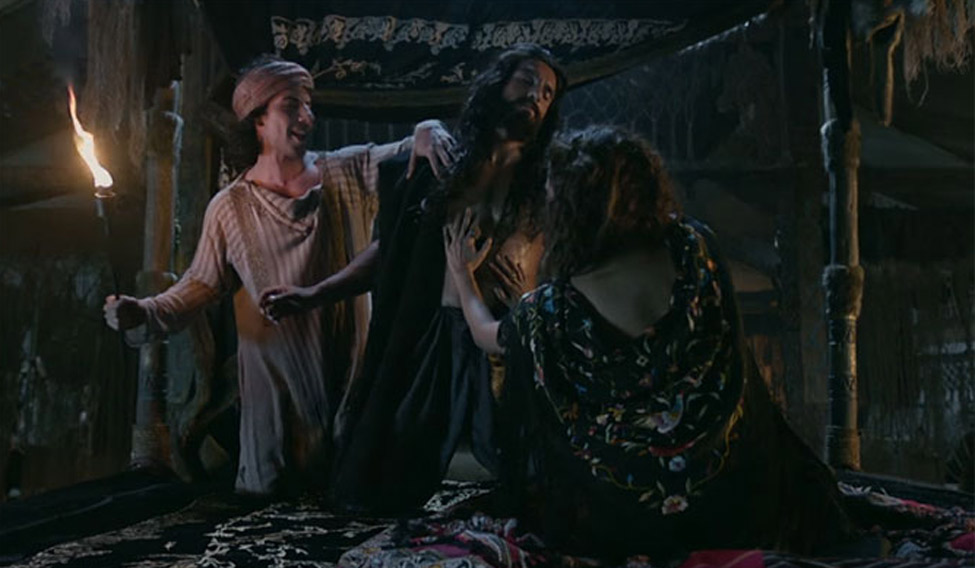In the West it's Armie Hammer and Timothy Chalamet giving interviews as a couple for their gay love story Call Me By Your Name. We haven't reached that nirvanic stage in India.
But Ranveer Singh and Jim Sarbh's homoerotic act in Sanjay Leela Bhansali's Padmaavat comes closest to obtaining a kind of legitimacy for same-sex relationships that this country has so far only seen in fringe films by Hansal Mehta (Aligarh) and Onir (My Brother Nikhil).
Of course, detractors will argue that showing the villain as bisexual in Padmaavat doesn't legitimise homosexuality as much as demonise it.
Then there will always be those who will look at mainstream cinema's attempts to validate non-mainstream sections and relationships with suspicion and distrust. But the fact remains that Ranveer Singh playing a man who is sexually attracted to another man is a big deal in Indian cinema.
He even gets into a bath-tub with Sarbh and at one point in the nubile narration, Sarbh gestures to ask if he can join his lord and monster..., pardon me, master, in bed.
Says Onir, "I love the chemistry between Ranveer and Jim Sarbh. I really like the shades that Sarbh has brought to his gay character."
We can now tell you that there was a lot of debate on the sets of "Padmaavat" as to how Sarbh should play Ranveer's "doosri begum", the first one being Aditi Rao. The director wanted the character to be ruthlessly macho and not the least effeminate, so that when Sarbh bursts into an evocative erotic number about unrequited love we almost feel the stretched-out strains of a gender-free love that has no definition or demarcation, only rejection and ridicule.
And then there is the tenderness between the two men. There is a sequence where Sarbh takes Ranveer's hand and places his face in it... the tenderness and anguish of that moment are clear. Call him by any name, but the gay lover is finally here to stay. Indeed, there is more chemistry between Ranveer and Sarbh than there is between Ranveer and his screen wife Aditi Rao.
In the global cinema, though, the movement towards mainstream legitimisation of same-sex relations has been in the making for years, with the mould being perhaps broken by Brokeback Mountain in 2005.
In the new flamboyant franchise film Maze Runner: The Death Cure we see another homoerotic relationship being given a healthy fillip—in the intense relationship between Thomas (Dylan O'Brien) and Newt (Thomas Brody-Sangster). Not that anyone says they are gay. But their passionate friendship runs through the course of this sinewy tale of dystopian derring-do, almost topping the hero's passionate relationship with the film's official female lead.
The film ends with Dylan reading a posthumous love letter written to him by Newt which very clearly states the passionate nature of their mutual affection. All this is in the domain of the forbidden being forced out of the uncapped tube of moral freefalling that would have been frowned at by the moral police in the past.
Now that there is, what shall I say, more acceptance, a forthcoming film, Surmayee Sham directed by Sridhar Rangayan, talks about a young man coming out of the closet on the eve of his marriage.
Just two years back, it took a Fawad Khan from another country to play a gay son of Delhi business family in Kapoor & Sons.
Given a chance, would Karan Johar have cast Ranveer Singh in Fawad's role? And more importantly, are we ready for the long-delayed sexual revolution in Hindi cinema?
-IANS









